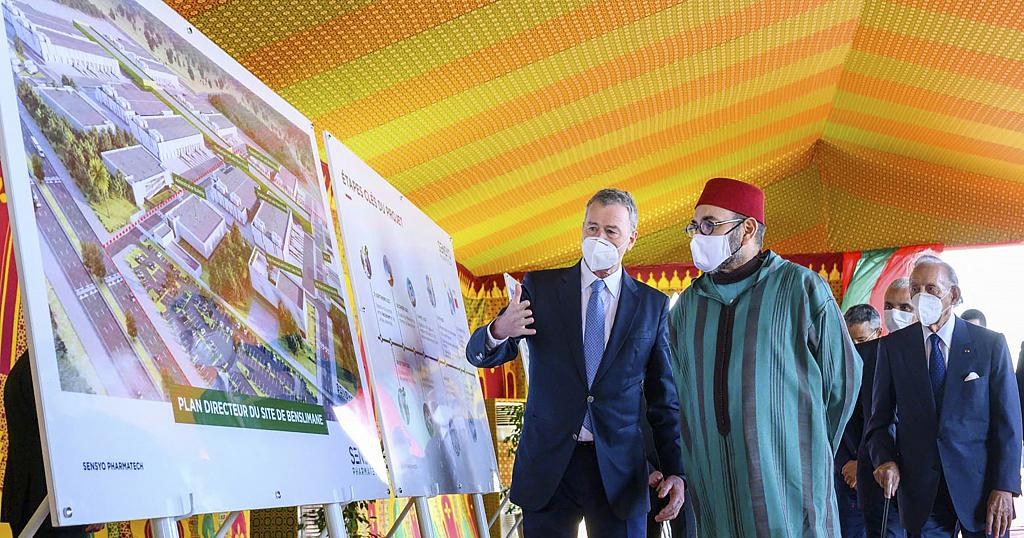256
 |
| Morocco’s King Mohammed VI (C) chairing a ceremony to launch the construction of a Covid-19 vaccine manufacturing plant in the region of Benslimane on January 27, 2022 – Copyright © /AFP |
Morocco has launched the construction of a manufacturing plant for anti-Covid vaccines, which should start production next July and ensure the kingdom’s vaccine self-sufficiency, the Moroccan news agency MAP reported Thursday.
The inauguration of the site was presided over by King Mohammed VI in Benslimane, in the region of Casablanca, the economic capital of the Cherifian kingdom.
Named SENSYO Pharmatech, this plant will be dedicated to “the manufacture and syringing of vaccines (anti-Covid and other vaccines)” and will have “three industrial lines whose combined production capacity will reach 116 million units in 2024”, details MAP.
The plant will eventually require an investment of about 400 to 500 million euros, says the same source.
This venture, in partnership with the Swedish company Recipharm, “will ensure the kingdom’s self-sufficiency in vaccines and make the country a leading biotechnology platform,” it adds.
The goal is to manufacture between 2022 and 2025 “the active substance of more than 20 vaccines and biotherapeutic products, including three vaccines against coronavirus, covering more than 70% of the needs of the kingdom and more than 60% of those of Africa,” according to the agency.
Morocco has already started the production of more than three million doses of Chinese Sinopharm vaccine each month. This monthly production should reach five million doses starting next month and more than 20 million by the end of 2022.
With its 36 million inhabitants, the Cherifian kingdom is counting on its vaccination campaign to curb the pandemic: more than 23 million people have received a second dose of vaccine, according to the Ministry of Health.
The objective of the authorities is to immunize 80% of the population, i.e. some 30 million people, with Sinopharm and Pfizer/BioNTech vaccines.
While the peak of the Omicron variant infections seems to have been reached during the week of January 17 to 23, according to the Ministry of Health, the government — under pressure from the bankrupt tourism sector to reopen the airspace closed since November 29 — is concerned about the recent increase in cases in intensive care.
The state of health emergency was extended Thursday until February 28.
Neighboring Algeria launched local production of the Coronavac vaccine in late September, in partnership with the Chinese firm Sinovac.

